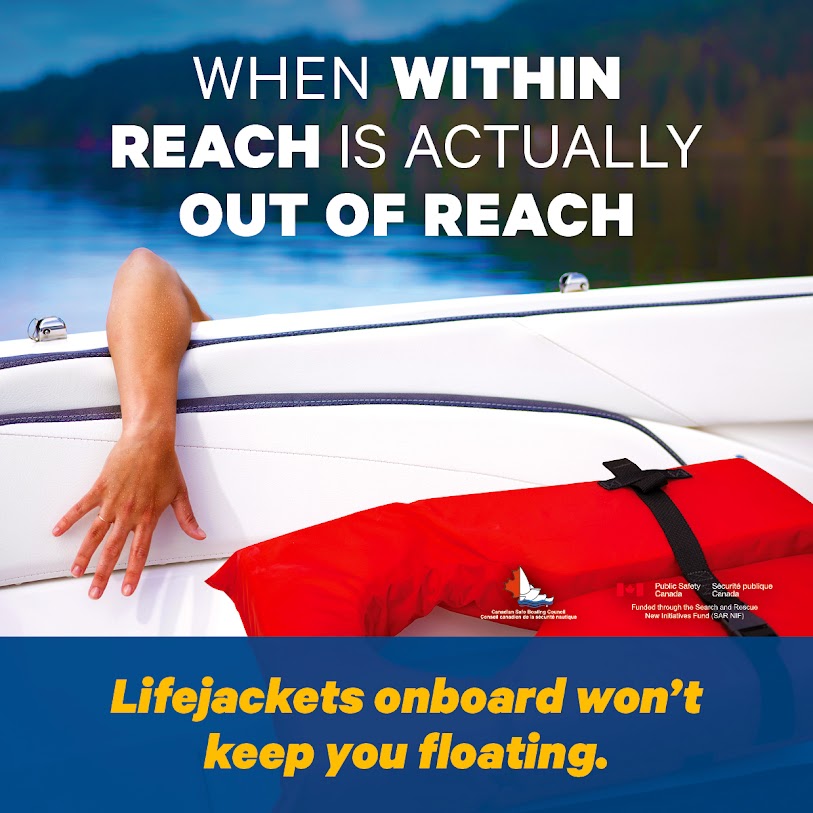Cold
water kills! Human deaths from cold
water immersion (cold water is considered to be any water below the temperature
of 59o F, or 15o C), are seldom caused by actual
hypothermia. Instead over half of all deaths
are caused by the first two stages of cold water death; “cold shock” and
then “incapacitation”, a near term symptom of mild hypothermia, which
“causes them to lose their physical and mental ability to survive”1,
causing swimmers to become weak and unable to help or rescue themselves.
Cold water death
“Cold Shock”
- - You have 1 minute to control your breathing...
77o F (25o C). The severity of the “cold shock” you experience is directly proportional to the temperature of the water – the colder the water temperature, the greater the shock. In water temperatures of 35o F (2o C) and below you will suffer intense pain and severe shock on first plunging into the water.
On
initial immersion, “cold shock” will cause you to take an involuntary
and uncontrollable large gasp, followed by hyperventilation and the inability
to hold your breath during the first one to three minutes of immersion, this
can cause water inhalation and drowning.
There is also a massive increase in your heart rate and blood pressure,
which can cause cardiac issues and death.
Your chance of death within the first few minutes of immersion in cold
water is dependent on your overall health and body type AND whether you are
wearing a life jacket or not.
Wearing
a life jacket will keep your head above water during those first moments of “cold
shock” and allow you time to control your breathing and keep your head
above the water. If your head is below
the surface, those first gasps will suck in water and less than ½ a cup (120
ml) will drown you!
“You
have one minute to get your breathing under control and get your wits about you.”2
Okay,
you’ve survived the first minute, you’ve gotten your panic and breathing under control,
and haven’t drowned...yet! But what do
you do to prevent the second stage of cold water death, “incapacitation”,
from killing you in the next ten minutes?
Don’t forget to come back next week and read “How
Long Would You Last? Part Three©”, to find out.
I
hope that you continue to enjoy The Woodsman’s Journal Online and look for me
on YouTube at BandanaMan Productions for other related videos, HERE. Don’t forget to follow me on both The
Woodsman’s Journal Online, HERE,
and subscribe to BandanaMan Productions on YouTube. If you have questions, as always, feel free
to leave a comment on either site. I
announce new articles on Facebook at Eric Reynolds, on Instagram at
bandanamanaproductions, and on VK at Eric Reynolds, so watch for me.
That
is all for now, and as always, until next time, Happy Trails!
Notes
1 Cold
Water Survival & Hypothermia – you May Not Know As Much As You Think”, by
The United State Coast Guard.
2 “How
to survive a fall through the ice”, by Rena Sarigianopoulos.
Sources
Auerbach,
Paul S.; “Wilderness Medicine E-Book”, page 1502, https://books.google.com/books?id=tdTInPqMCjMC&pg=PA1502&dq=able+to+swim+approximately+800+m+in+10+%C2%B0C&hl=en&newbks=1&newbks_redir=0&sa=X&ved=2ahUKEwjKm-KUg_OFAxXbLFkFHbNBBvwQ6AF6BAgLEAI#v=onepage&q=able%20to%20swim%20approximately%20800%20m%20in%2010%20%C2%B0C&f=false,
accessed May 3, 2024
Ferrell,
Jesse; “Weather maps from the night the Titanic sank”,
AccuWeather, April 12, 2022, https://www.accuweather.com/en/weather-blogs/weathermatrix/weather-maps-from-the-night-the-titanic-sank/1173542#:~:text=Although%20the%20weather%20itself%20didn,certainly%20contributed%20to%20the%20tragedy,
accessed April 27, 2024
Hamilton,
Terry; “Hypothermia is a Major Cause of Winter Drowning Deaths”, Spartanburg
Herald-Journal, Dec 8, 1979, page B-9, https://books.google.com/books?id=Wm0sAAAAIBAJ&pg=PA30&dq=survival+shelter+lost&article_id=6980,2137795&hl=en&sa=X&ved=2ahUKEwjD49-L7vGFAxWrD1kFHRj8D9E4UBDoAXoECAUQAg#v=onepage&q=survival%20shelter%20lost&f=false, accessed May 3, 2024
Joiner, William C. SSGT;
“Cold Water Immersion”, Aerospace Safety, United States Air Force,
Volumes 34, Number 1, January 1978, page 6 to 7, https://books.google.com/books?id=BDf0AAAAMAAJ&newbks=1&newbks_redir=0&printsec=frontcover&pg=RA12-PA7&dq=water+chill+without+anti+exposure+suit&hl=en#v=onepage&q=water%20chill%20without%20anti%20exposure%20suit&f=false,
accessed April 24, 2024
Kalkomey Enterprises,
LLC; “Stages 1 and 2 of Cold Water Immersion”, [© 1998–2024], https://www.boat-ed.com/canada/studyGuide/Stages-1-and-2-of-Cold-Water-Immersion/10119902_114125/,
accessed April 27, 2024
Mathews,
Blake; “How weather helped sink the Titanic”, April 10, 2018, https://www.khou.com/article/news/local/how-weather-helped-sink-the-titanic/285-537036316#:~:text=The%20lookouts%20along%20with%20the,lethal%20temperature%20for%20any%20person,
accessed April 27, 2024
Navigation Center; “How
Large Was The Iceberg That Sank The Titanic”, U.S. Department of Homeland
Security, United States Coast Guard, https://web.archive.org/web/20140105034754/http://www.navcen.uscg.gov/?pageName=iipHowLargeWasTheIcebergThatSankTheTITANIC,
accessed April 27, 2024
Parchman, Greg, Capt.;
“So, Let Me Get This Straight-High Body Fat is a Good Thing?”, Approach,
Volume 41, Issue 2, March -April, 1996, page 18 to 20, https://books.google.com/books?id=LQNQRzJjOoQC&newbks=1&newbks_redir=0&printsec=frontcover&pg=PA20&dq=water+chill+without+anti+exposure+suit&hl=en#v=onepage&q=water%20chill%20without%20anti%20exposure%20suit&f=false,
accessed April 24, 2024
Titanic
Inquiry Project; “United States Senate Inquiry: Day 4 - Testimony of Herbert J.
Pitman”, [Copyright © 1998-2017: Titanic Inquiry Project], https://www.titanicinquiry.org/USInq/AmInq04Pitman03.php,
accessed April 27, 2024
Titanic’s Officers;
“Second Officer C.H. Lightoller – Sinking and Collapsible B”, © 2024
TitanicOfficers.com, https://www.titanicofficers.com/titanic_04_lightoller_08.html,
accessed April 27, 2024
United
State Coast Guard;
“Cold Water Survival & Hypothermia–You May Not Know As Much As You Think”,
https://www.dco.uscg.mil/Portals/9/DCO%20Documents/5p/CG-5PC/CG-CVC/CVC3/notice/flyers/Cold_Water_Survival_Hypothermia.pdf,
accessed April 27, 2024
Warren, Elizabeth G.,
SSGT; “Hypothermia: Missing in the Atlantic”, Flying Safety, November
1983, pages 12 to 15, https://www.safety.af.mil/Portals/71/documents/Magazines/FSM/1980s/198311%20-%20FlyingSafetyMagazine.pdf,
accessed May 4, 2024
Wikimedia; “Jack Thayers
description of the sinking of RMS Titanic”, https://commons.wikimedia.org/wiki/File:Thayer-Sketch-of-Titanic.png,
accessed April 27, 2024
Wikimedia; “The iceberg
suspected of having sunk the RMS Titanic”, https://commons.wikimedia.org/wiki/File:Titanic_iceberg.jpg,
accessed April 27, 2024







No comments:
Post a Comment